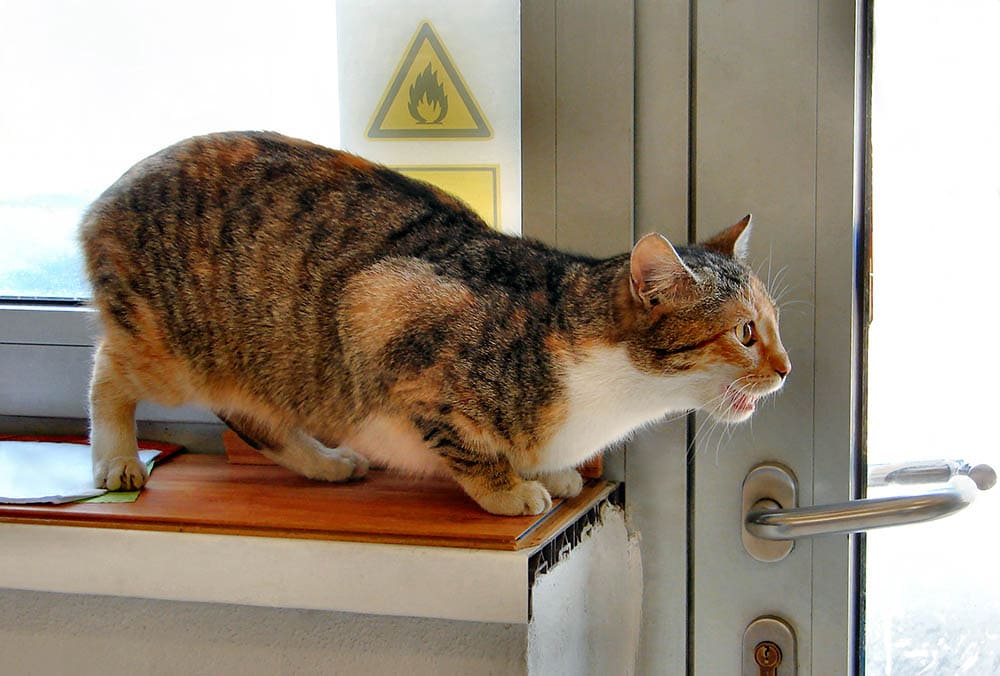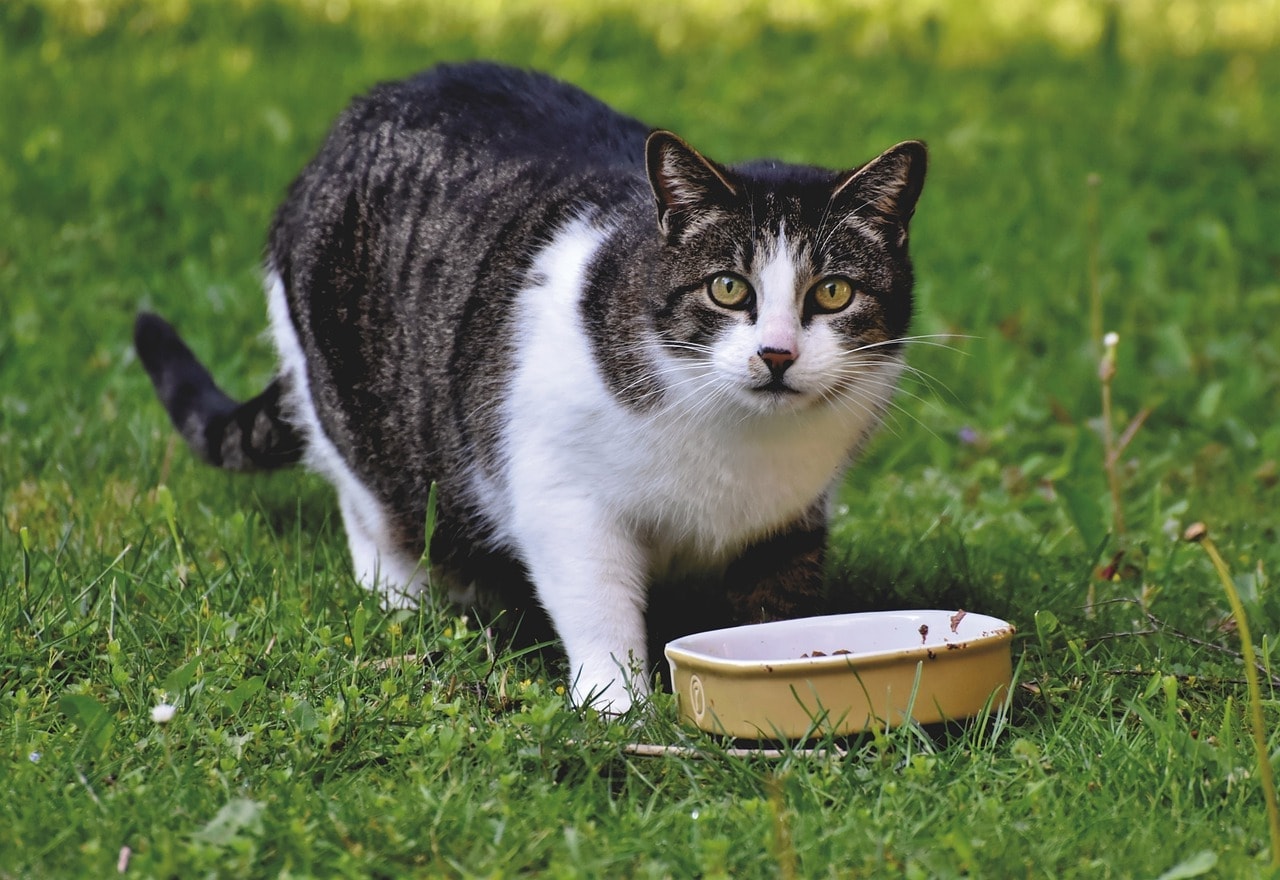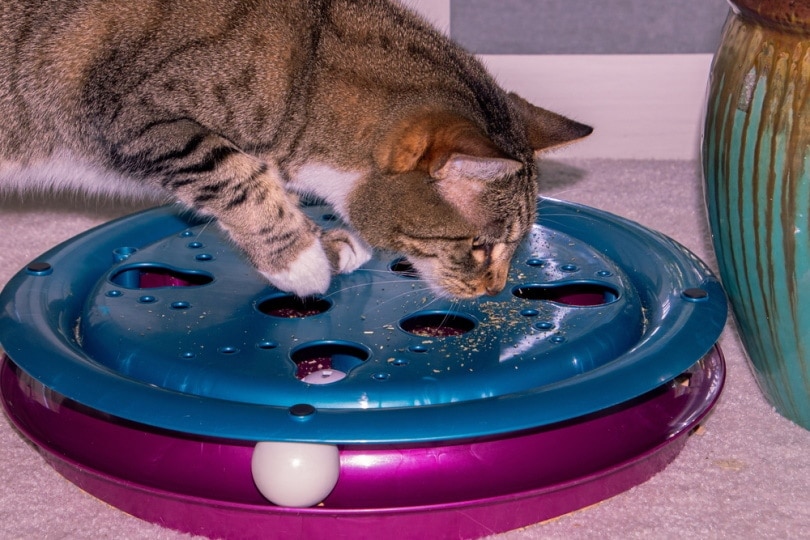Can Cats Eat Ranch Dressing? What You Need to Know!
Updated on
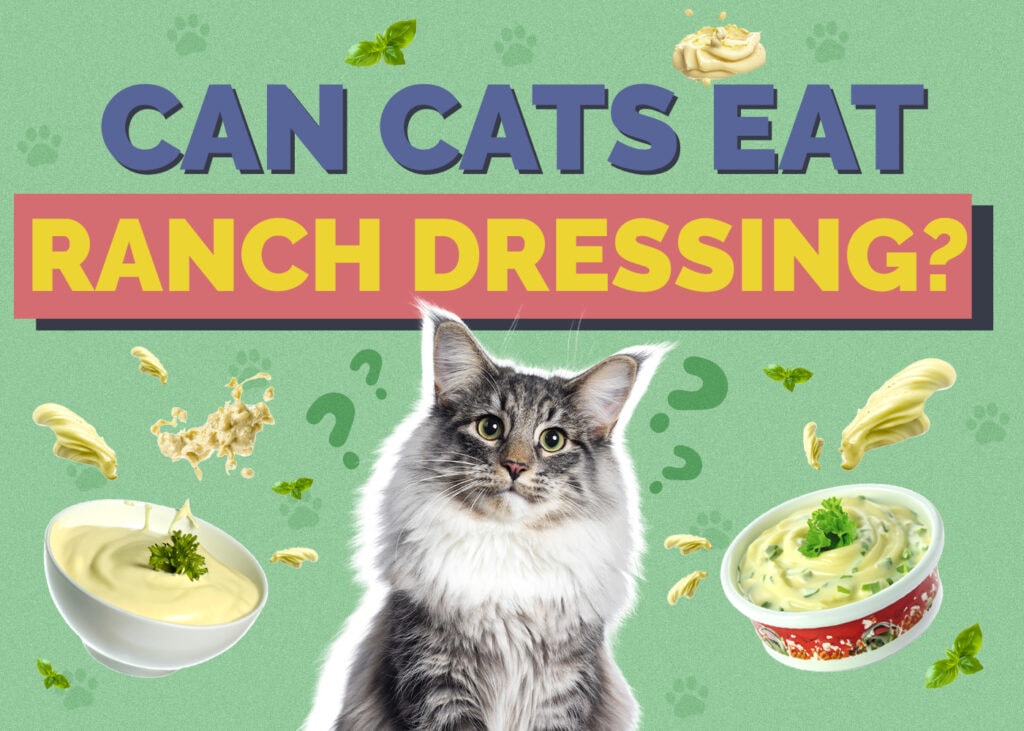
Cats are usually finicky eaters, but they do sometimes enjoy chowing down on foods that we humans like to eat. This is especially true when it comes to things like steak, chicken, and even French fries. Condiments are not usually a cat favorite, but some simply cannot resist the taste and/or texture of ranch dressing. If you have ever left a little ranch on your plate or in a dipping container, you might have noticed your cat taking a lick or two.
The dairy content in ranch dressing is likely what attracts cats to this condiment, but that does not mean it is good for your feline. Should cats eat ranch dressing? The short answer is no, they should not. Here is what you should know about feeding ranch dressing to your cat.
Here’s Why You Should Not Feed Ranch Dressing to Your Cat
Ranch dressing might seem harmless because it is a condiment and is typically consumed in moderation. However, even a small amount of ranch dressing could spell trouble for your kitty. While no single ranch dressing recipe is exactly alike, almost all contain the same common ingredients. Most troublesome are garlic and onions, both of which are toxic to cats.
Eating onions, whether in a whole form or powdered, can result in the development of anemia in cats. Your cat does not need to eat that much onion at once to get poisoned, as it builds up within the body. Eating small amounts of onion over time can be just as dangerous as eating a large amount at once. Garlic can also break down your cat’s healthy red blood cells after being consumed and result in serious health consequences.
It is also important to note that most cats are lactose intolerant, and ranch dressing happens to be full of lactose. The lactose usually comes in the form of buttermilk, sour cream, and sometimes even mayonnaise. If your cat gets a hold of ranch dressing, they could end up with temporary problems like flatulence and diarrhea.
Another problem with ranch dressing is that is full of oil, salt, sugar, and even MSG, all of which are not healthy for cats. The added sugar could negatively impact your cat’s blood sugar levels, and the MSG can change their appetite and make them lose interest in food at mealtime. Therefore, it’s best not to allow your cat to enjoy even a lick of ranch dressing if you can help it.
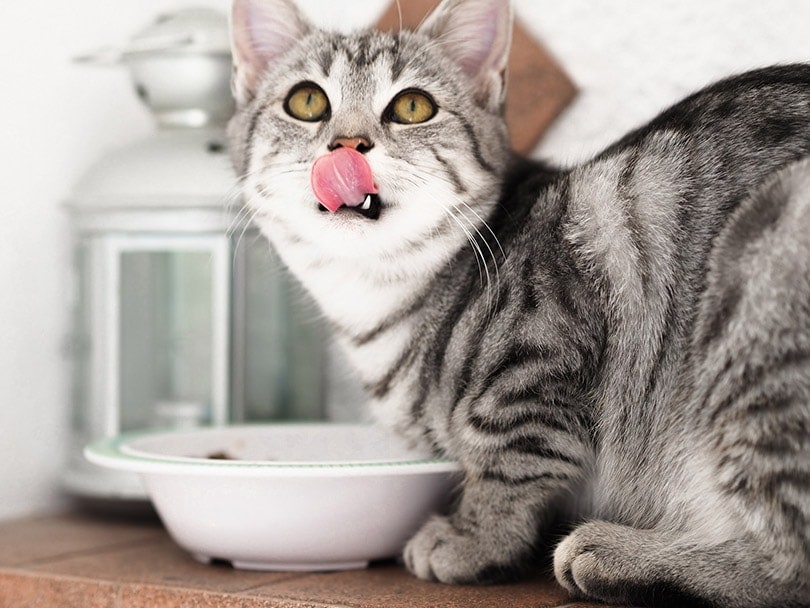
There Are No Alternatives to Ranch Dressing
If your cat likes ranch dressing and seems to come looking for it whenever it’s on the counter, unfortunately, you probably won’t find any alternatives to help curb your pet’s ranch cravings. Therefore, it is a good idea to distract your cat from the ranch dressing that they are stalking by offering up a healthier and more nutritious snack instead.
The alternatives that you offer up should be rich in protein and low in sugars. Things like carrot and celery sticks, spinach leaves, and sweet potato chunks are good options because they are full of vitamins and minerals yet low in simple carbohydrates and sugars. Other snack options that your cat will like include:
- Tuna
- Mackerel
- Chicken
- Beef
- Liver
Make sure the meats that you offer your cat are fully cooked and prepared without oils, garlic, onions, and other spices. Always let meat cool to room temperature before offering it to your cat for consumption, or you might end up tending to a burned tongue and mouth.
Now that you know what you can safely feed your cat, it’s just as important to find a bowl that supports their health and well-being. With whisker-friendly bowls and a wide tray to catch any spills, our Hepper NomNom Cat Bowl is our favorite option.
Conclusion
Your cat might enjoy eating the ranch dressing that you happen to be so fond of, but the simple fact is that it could seriously injure or kill your pet if too much is consumed whether at once or as time goes on. It is a good idea to always keep your ranch dressing away from your cat, even if that means rinsing a dish with remnants of the condiment on it as soon as you are done eating. You should not panic if you find your cat eating ranch dressing, though. Chances are that no troubles will surface unless it happens often. If you are ever in doubt, contact your veterinarian for advice and guidance.
Related Reads:
- Can Cats Eat Toothpaste? What You Need to Know!
- Can Cats Eat Pigs’ Ears? Here’s What You Need to Know!
Featured Image Credit: Elena Veselova, Shutterstock


